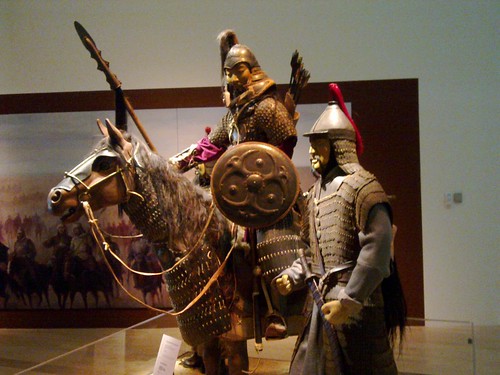skip to main |
skip to sidebar

"At the military level, Mongol doctrine relied for success almost entirely on learning exactly where their enemies were, while keeping their own whereabouts a secret until they attacked. This enabled them, despite a chronic inferiority in numbers, to overthrow the finest, largest armies of imperial China, Islam, and Christendom... In one of their greatest campaigns, against the mighty Muslim empire of Khwarizm (located approximately on the territory of today's Iran, Iraq, and portions of the central Asian republics of the former Soviet Union), a Mongol army of some 125,000 toppled a foe whose standing armies amounted to nearly half a million troops, with a similar number of reserves. How could this happen? The answer is that the Mongols identified the linear, forward dispositions of their foes and avoided them. Instead, they worked around the defenders, making a point of waylaying messengers moving between the capital and the front.
"
Muhammad Ali Shah, the ruler of Khwarizm, took the silence from the front as a good sign, until one day a messenger, having narrowly escaped a Mongol patrol, made his way to the capital, Samakand. Muhammad inquired about the news from his army and was told that the frontier was holding. The messenger went on to add however, that he had observed a large Mongol army but a day's march from the capital. The shah fled and his capital fell swiftly. This news, when given to the frontier armies, led to a general's capitulation".
J. Arqulla and D. Ronfeldt
Comparative Strategy, Volume 12, "Cyberwar is Coming," 1993





No comments:
Post a Comment